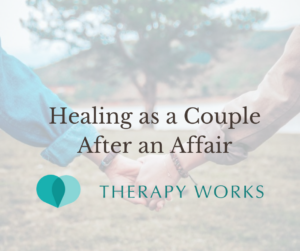Resentment can feel like an invisible chain, anchoring you to pain from the past and preventing you from embracing peace and happiness. It often begins as a protective response to emotional wounds but can spiral into a persistent source of anger and frustration. Whether it stems from a betrayal, feeling ignored, or unresolved conflict, resentment grows when difficult feelings are left unaddressed.

If you’ve been feeling upset for a long time, it’s natural to wonder if you’ll ever be able to release the pain and move forward. Letting go of resentment doesn’t mean dismissing what happened or pretending the hurt wasn’t real. It’s about freeing yourself from the emotional weight of the past, so it no longer dictates your present and future.
The first step towards healing is untangling the complex emotions and understanding their root cause.
What Causes Resentment?
Resentment often starts as a response to unmet expectations or feeling wronged in a relationship or situation. For instance, being betrayed by someone you trusted can leave an emotional scar, creating feelings of bitterness and disappointment.
Similarly, experiencing unfair treatment at work, feeling undervalued in a relationship, or witnessing unequal outcomes in your personal or professional life can sow the seeds of resentment. Over time, these feelings fester, especially when they’re not addressed, leading to a persistent sense of anger or hurt.
In many cases, resentment is fueled by silence or avoidance. For example, when conflicts are swept under the rug instead of being resolved, they leave behind unresolved tension. You might replay the event repeatedly in your mind, further entrenching your feelings of injustice.
Resentment also thrives in situations where you feel powerless—when you believe you had no control or choice in what happened.
Why Is It So Hard To Let Go Of Resentment?
Letting go of resentment can feel like giving up a form of emotional protection. When you’ve been hurt deeply, holding onto anger may seem like a way to guard yourself against future harm. It’s a natural response—one that gives you a sense of control in a situation where you feel powerless. But this protective shield often backfires, keeping you stuck in a cycle of pain and preventing you from moving forward.
Resentment can also feel deeply tied to your sense of identity. When you’ve been feeling angry or upset for a long time, it can become a part of how you see yourself. Letting it go might feel like losing a piece of yourself or invalidating your experience. This internal conflict, combined with the emotional habit of replaying past events, can make it seem impossible to release the hurt.
Recognizing that holding onto resentment only harms you—not the person or situation that caused it—is a powerful step toward breaking free from its grip.
What Does It Mean If You Feel Constantly Triggered?
Feeling constantly triggered by old wounds is often a sign of unresolved emotional pain. Triggers are external events or interactions that evoke intense emotional reactions, even if the current situation is only loosely connected to the original hurt.
For example, a phrase, gesture, or tone of voice might remind you of a painful moment, causing an emotional response that feels disproportionate to the present situation. These reactions can feel overwhelming, as though you’re reliving the past.
When you’re consistently triggered, it’s a sign that your emotional wound is still raw and unresolved. This reactivity can make it difficult to move forward, as it reinforces the cycle of resentment and keeps the pain fresh.
To break this pattern, it’s essential to identify your triggers and understand the deeper emotions behind them. This self-awareness can help you develop strategies to ground yourself in the present, reducing the power those old wounds have over your daily life.
Forgiving, But Not Forgetting The Past
Forgiveness is often a misunderstood concept, particularly when it comes to healing resentment. It is an often misunderstood concept because for many, forgiveness means erasing the pain or pretending the hurt never happened. Consider instead tht forgiveness is an act of self-liberation—it allows you to stop carrying the emotional burden that someone else’s actions placed on you. It’s about releasing resentment so you can reclaim your emotional freedom and focus on your own peace.
What Forgiveness Really Means
Forgiving someone doesn’t mean excusing their behavior or inviting them back into your life. In many cases, forgiveness is something you do for yourself, not the other person. It’s an acknowledgment that holding onto anger and resentment only prolongs your suffering. You might say, “I release this pain not because it wasn’t significant, but because I deserve peace.”
Additionally, forgiveness doesn’t always require reconciliation. If the person who hurt you is unwilling or unable to change, you can still forgive while maintaining boundaries that protect your emotional well-being. This distinction is crucial—it empowers you to prioritize your needs without feeling pressured to restore a broken relationship.
Balancing Forgiveness and Self-Protection
While forgiveness is an important step toward healing, it’s equally important to protect yourself from further harm. This often involves setting clear boundaries with the person who hurt you, whether that means limiting contact, defining the terms of your interactions, or cutting ties altogether. Forgiveness doesn’t erase the past, but it can help you shift your focus from the pain to your own growth and resilience.
Remember, forgiving doesn’t mean forgetting. The past holds valuable lessons that can guide you toward healthier relationships and stronger boundaries in the future. By balancing forgiveness with self-protection, you can honor your experiences without letting them define your future.
Dealing With Difficult Emotions
Resentment is rarely a single, isolated feeling. It’s often a mix of difficult emotions—anger, sadness, frustration, and even shame—all intertwined and unresolved. Dealing with these complex emotions is a challenging but essential part of letting go of resentment. It requires you to sit with your difficult feelings, acknowledge their presence, and find healthy ways to process them.
Acknowledging Your Emotions Without Judgment
The first step to dealing with difficult emotions is giving yourself permission to feel them fully. Often, people try to suppress or ignore feelings like anger or sadness because they’re uncomfortable or seem “wrong.” However, emotions are neither good nor bad—they’re simply signals that something needs your attention. Recognizing and validating your emotions is a crucial step toward healing.
Consider journaling as a tool to explore your feelings. Writing down your thoughts and emotions can provide clarity and help you process what’s beneath the surface. You might also try naming your emotions—saying, “I am feeling angry because…” or “I am feeling upset because…” This practice can help you untangle the web of feelings and understand their root causes.
Finding Healthy Outlets for Emotional Release
Once you’ve acknowledged your emotions, the next step is finding ways to release them constructively. Physical activity, like going for a run or practicing yoga, can help you work through pent-up anger or frustration. Creative outlets, such as painting or playing music, allow you to channel your emotions into something tangible and meaningful.
Mindfulness practices, such as deep breathing or meditation, can also help you navigate intense feelings. These techniques encourage you to stay present with your emotions without becoming overwhelmed by them. Over time, mindfulness can create a sense of calm and stability, making it easier to approach your emotions with compassion and curiosity.
By addressing difficult emotions directly, you can begin to loosen resentment’s grip and make room for healing and peace. It’s not about eliminating these feelings overnight—it’s about learning to coexist with them while slowly releasing their hold on you.
Knowing When You Can’t Do This On Your Own
Sometimes, despite your best efforts, resentment can feel too overwhelming to handle on your own. This is especially true if it’s deeply rooted in trauma or if it has begun to affect your daily life and relationships. Recognizing when you need help is a sign of strength, not weakness. It’s an act of self-compassion that acknowledges your limits and prioritizes your well-being.
Consider reaching out to trusted friends, family members, or support groups. Sharing your feelings with someone who understands can provide a sense of relief and validation.
If resentment continues to dominate your emotions, seeking professional help can offer the structure and guidance needed to process your pain and begin healing. You don’t have to navigate this journey alone—help is available when you need it.
How Therapy Can Help
Therapy is a tool for working through resentment and the complex emotions that come with it. A skilled therapist can help you identify the root causes of your resentment, explore patterns in your thoughts and behaviors, and develop strategies for managing triggers. Through therapy, you’ll gain insights into your emotional responses and learn practical tools to navigate them with greater ease.
In addition to addressing the past, therapy provides a safe and supportive space to work toward the future. Whether it’s setting boundaries, building emotional resilience, or cultivating forgiveness, a therapist can guide you in creating a healthier relationship with yourself and others.
The process might feel challenging at times, but the emotional freedom and clarity you gain are worth the effort. Therapy is a helpful way for you to rediscover peace and reclaim your life while prioritizing your emotional well-being.
If you’ve no idea how to let go of resentment, reach out for help. Whether from loved ones or a therapist, is a courageous step toward healing. Therapy, in particular, offers the tools and support needed to navigate this journey with compassion and strength.
Ready to start letting go of resentment? Contact Stephanie today to take the first step toward a more peaceful, fulfilling life.




